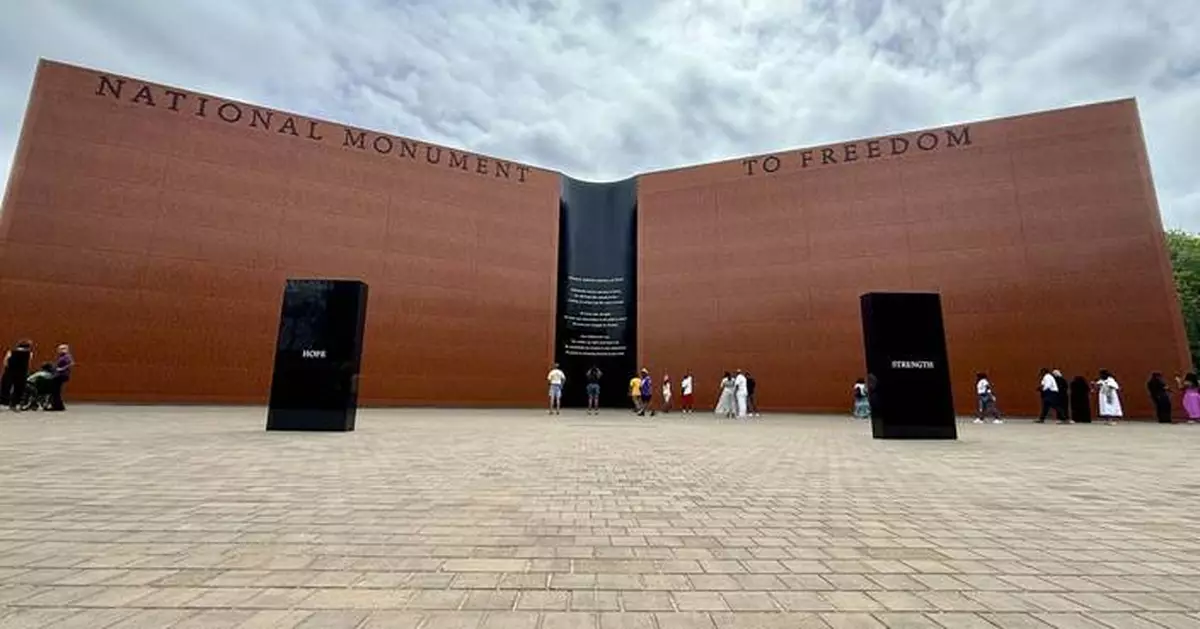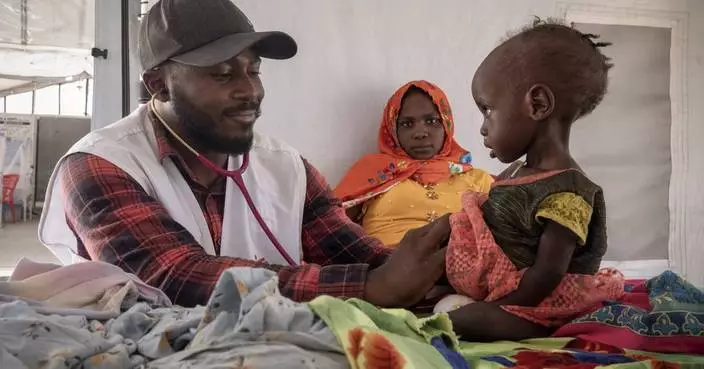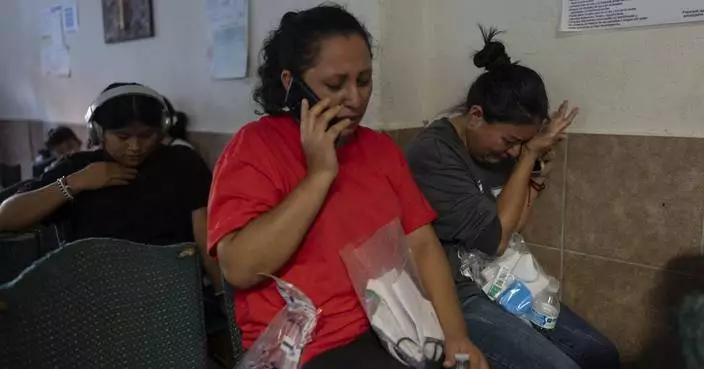MONTGOMERY, Ala. (AP) — Thousands of surnames grace the towering monument, representing the more than 4 million enslaved people who were freed after the Civil War.
The Equal Justice Initiative, a criminal justice reform nonprofit, invoked the Juneteenth holiday — the day that commemorates the end of slavery in the U.S. — on Wednesday as it dedicated its National Monument to Freedom.
The monument, which honors the people who endured and survived slavery, is the centerpiece of the new Freedom Monument Sculpture Park in Montgomery, Alabama, where art and historical artifacts tell the story of enslaved people in the United States.
During the dedication ceremony, Equal Justice Initiative founder Bryan Stevenson recounted how enslaved people endured unspeakable horrors, but also left a legacy of perseverance and strength.
“Enslaved people in this country did something remarkable that we need to acknowledge, that we need to recognize and that we need to celebrate. Enslaved people resisted. Enslaved people were resilient. Enslaved people found ways to make a way,” Stevenson said.
Juneteenth is a day to confront the brutality of slavery and its impact, but he said it is also a day to celebrate the dignity and strength of people who managed to love and survive despite what they faced.
“They never stopped believing. The never stopped yearning for freedom. This morning, as we leave here this Juneteenth morning, I hope we will be hopeful,” Stevenson said.
Juneteenth commemorates June 19, 1865, the day enslaved people in Galveston, Texas, found out they were free after the Civil War. The news came two months after the end of the Civil War and about 2 1/2 years after the Emancipation Proclamation.
Stretching four stories into the sky, the National Monument to Freedom is inscribed with 122,000 surnames that formerly enslaved people chose for themselves, as documented in the 1870 Census, after being emancipated at the Civil War’s end. Those last names represent the more than 4 million enslaved people who were set free after emancipation.
The Equal Justice Initiative created the park to tell the story of enslaved people with honesty. The sculpture park is the third site created by the organization. The first two sites — the National Memorial for Peace and Justice, a memorial to people slain in racial terror killings; and The Legacy Museum: From Enslavement to Mass Incarceration — opened in 2018.
Dr. Michele R. Williams and her mother, Barbara Y. Williams, scanned the rows of names on Wednesday morning, looking for their family surname, Murdough.
“There’s a story connected to every single name and the families that they represent,” Michele Williams said. Their ancestor, a man named Moses, is believed to have lived in one of the two slave cabins that were taken from an Alabama plantation to become an exhibit at the sculpture park.
“It was just heart-wrenching, but also super-moving,” Michele Williams said of seeing the cabin.
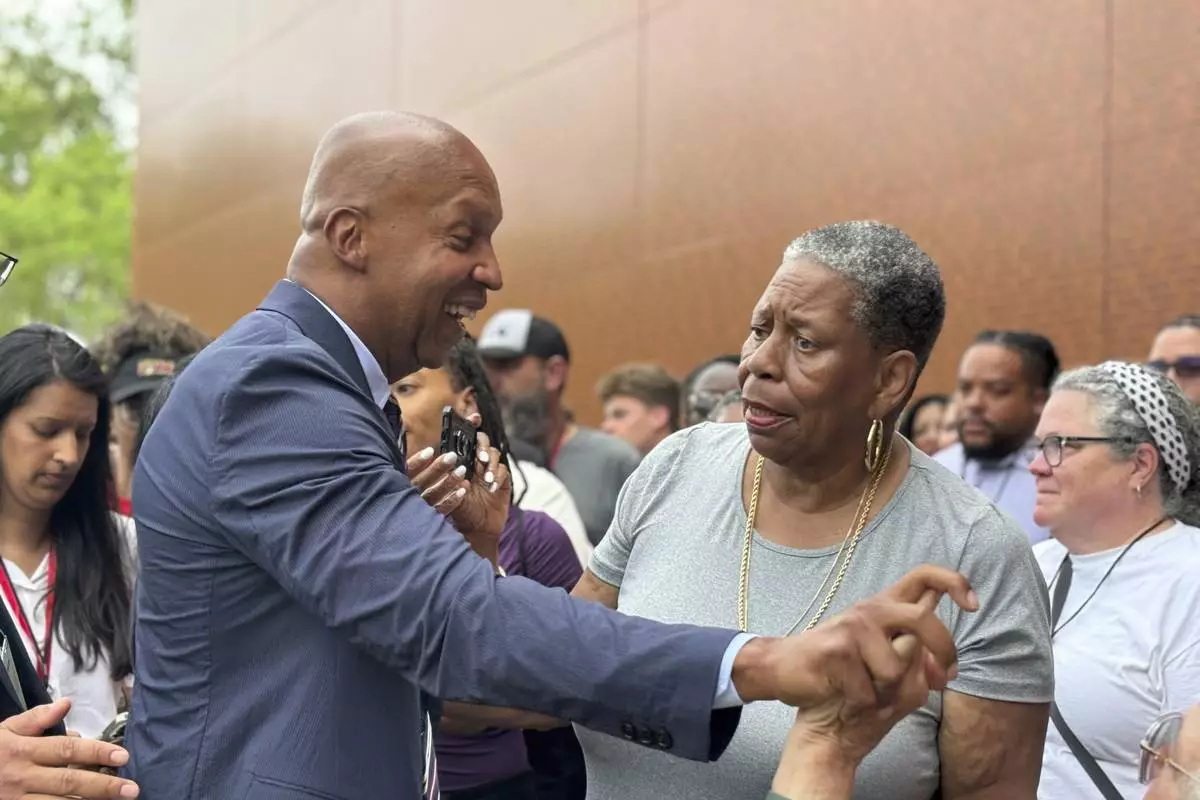
Bryan Stevenson, the founder of the Equal Justice Initiative, speaks with JoAnne Bland and other well-wishers after the dedication of the National Monument to Freedom on June 19, 2024, in Montgomery, Ala. (AP Photo/Kim Chandler)
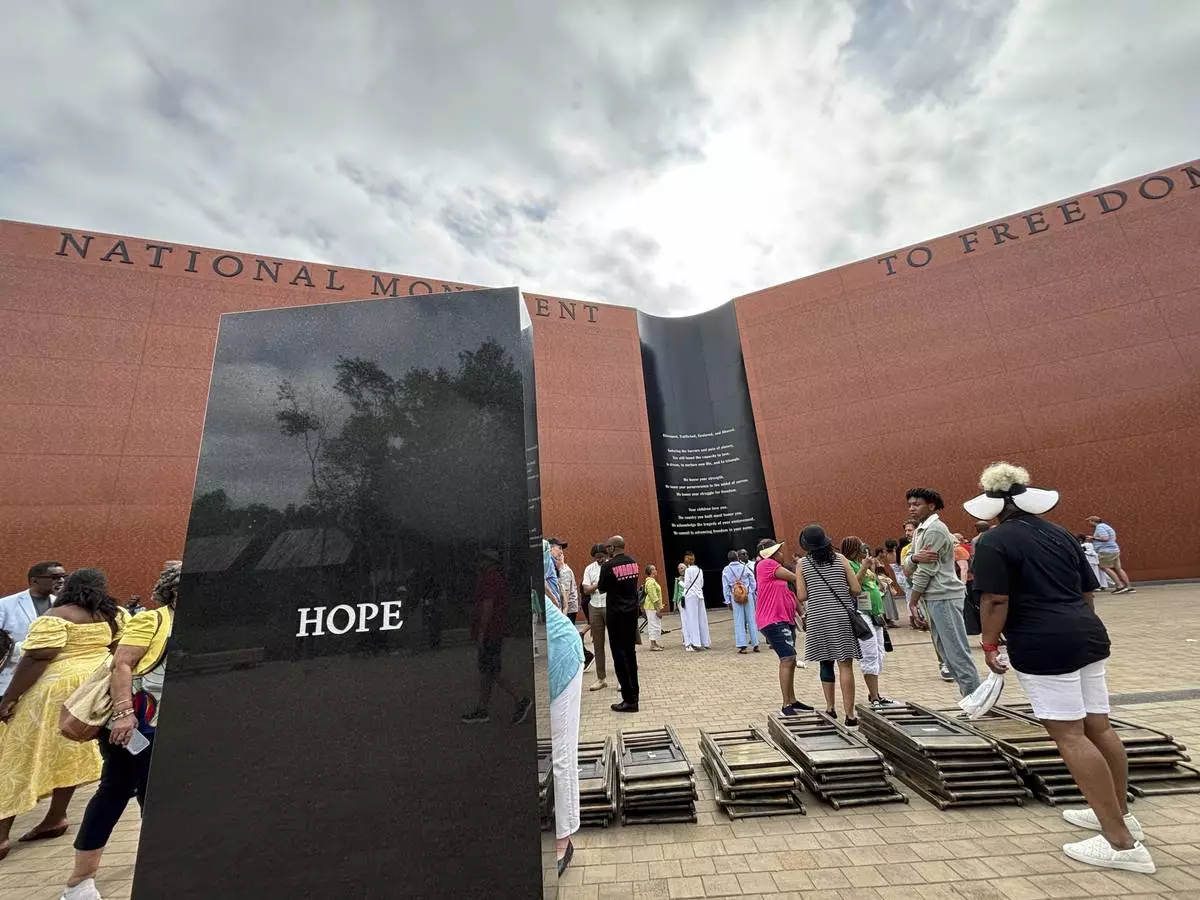
People visit the National Monument to Freedom on Wednesday, June 19, 2024 in Montgomery, Ala. The monument is inscribed with 122,000 surnames that formerly enslaved people chose for themselves, as documented in the 1870 Census, after being emancipated at the Civil War's end. (AP Photo/Kim Chandler)

Gabriella Jackson, 7, and Erica Jackson,9, look for familiar names at the dedication of the National Monument to Freedom on Wednesday, June 19, 2024 in Montgomery, Ala. The monument is inscribed with 122,000 surnames that formerly enslaved people chose for themselves, as documented in the 1870 Census, after being emancipated at the Civil War's end. (AP Photo/Kim Chandler)
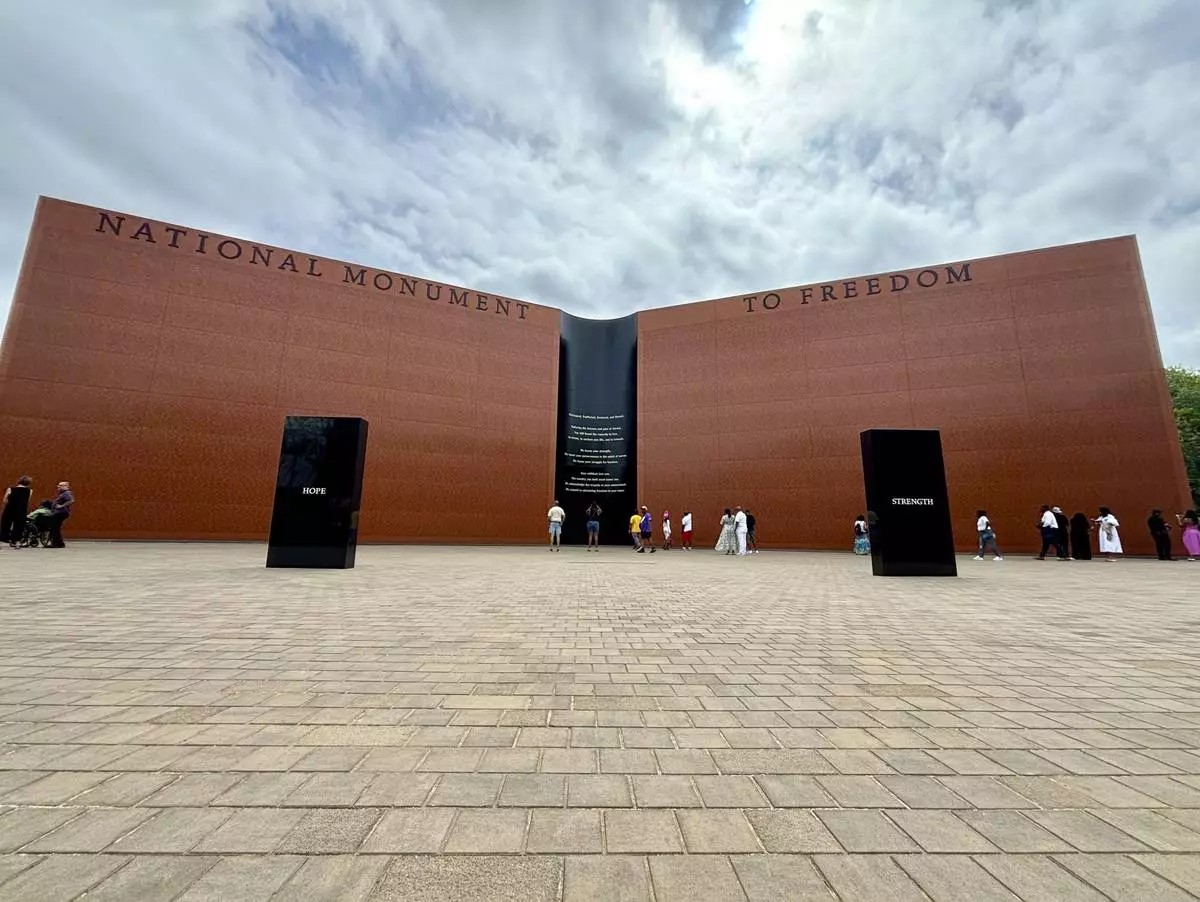
Visitors arrive at the National Monument to Freedom on Wednesday, June 19, 2024 in Montgomery, Ala. The monument is inscribed with 122,000 surnames that formerly enslaved people chose for themselves, as documented in the 1870 Census, after being emancipated at the Civil War's end. (AP Photo/Kim Chandler)
LA PAZ, Bolivia (AP) — Calm returned to Bolivia's capital on Thursday after troops led by a top general stormed the presidential palace, then quickly retreated, tumultuous scenes that threatened to pitch the long-troubled South American democracy into chaos.
The nation of 12 million watched in shock and bewilderment Wednesday as Bolivian military forces appeared to turn on the government of President Luis Arce, seizing control of the capital’s main square with armored personnel carriers, crashing a tank into the palace and unleashing tear gas on protesters who flooded the streets.
The country's army chief, Gen. Juan José Zúñiga, addressed a scrum of TV reporters from the palace, vowing to “restore democracy,” replace the cabinet, and free political prisoners.
But as opposition leaders condemned the apparent coup attempt, it became clear that the coup had no meaningful political support. Arce refused to relent and named a new army commander, who immediately ordered troops to stand down, ending the rebellion after just three chaotic and head-snapping hours. Hundreds of Arce’s supporters rushed the square outside the palace, waving Bolivian flags, singing the national anthem and cheering.
“Here we are, firm, in the presidential palace, to confront any coup attempt,” Arce said after facing down Gen. Zúñiga, calling on Bolivians to mobilize in defense of democracy.
Authorities swiftly arrested Zúñiga as his soldiers retreated from central La Paz, crushing the apparent coup attempt and defusing the latest crisis in a country wracked by a bitter political rivalry and economic crisis.
“Their goal was to overturn the democratically elected authority,” Government Minister Eduardo del Castillo told journalists in announcing the arrests of Zúñiga along with an alleged co-conspirator, former navy Vice Adm. Juan Arnez Salvador.
The short-lived rebellion followed months of mounting tensions between Arce and his one-time ally, former President Evo Morales. Bolivia's first Indigenous president, Morales remains a global leftist icon and towering figure in national politics years after mass protests that prompted him to resign and flee in 2019 — an ouster his supporters view as a coup.
Since returning from exile, Morales has staged a dramatic political comeback. Threatening to challenge Arce in 2025 primaries, Morales has sparked an unprecedented rift in their ruling socialist party. The feud has paralyzed efforts to resolve a spiraling economic crisis, with the country's foreign currency reserves diminishing, its natural gas exports plummeting and its currency peg collapsing.
As police in riot gear set up blockades outside the presidential palace, Bolivians — though no stranger to political conflict in a country that has witnessed some 190 coups by one count — thronged ATMs, formed long lines outside gas stations and emptied shelves in grocery stores and pharmacies.
Flanked by the newly appointed military chiefs late Wednesday, Defense Minister Edmundo Novillo sought to reassure the rattled public and shed light on what had happened.
The turmoil began earlier this week, Novillo said, when Arce dismissed Zuñiga in a private meeting Tuesday over the army chief's threats to arrest Morales if he proceeded with his presidential bid in 2025. In their meeting, Novillo said that Zuñiga gave officials no indication he was preparing to seize power.
“He admitted that he had committed some excesses," Novillo said of Zuñiga. “We said goodbye in the most friendly way, with hugs. Zuñiga said that he would always be at the side of the president.”
The frantic palace takeover began hours later. Tailed by armored vehicles and supporters, Zuñiga burst into government headquarters and declared that he was sick of political infighting. “The armed forces intend to restore the democracy,” he said.
Members of the country’s fragmented opposition, which Zuñiga claimed to support, rejected the coup before it was clear it had failed. Former interim President Jeanine Áñez, detained for her role in Morales’ 2019 ouster, said that soldiers sought to “destroy the constitutional order” but appealed to both Arce and Morales not to run in the 2025 elections.
The mutiny by a lifelong member of the military with a low political profile stirred confusion. Just before his arrest, Zúñiga claimed that President Arce himself had asked the general to storm the palace in a ploy to boost the embattled leader's popularity.
“The president told me: ‘The situation is very screwed up, very critical. It is necessary to prepare something to raise my popularity,'” Zúñiga quoted the Bolivian leader as saying.
Justice Minister Iván Lima denied Zúñiga’s claims, insisting the general was lying to justify his actions. Prosecutors will seek the maximum sentence of 15 to 20 years in prison for Zúñiga on charges of "attacking the constitution," he said.
Analysts said that, more than anything, Wednesday's events underscored the weakness of Bolivia's democratic institutions.
“This grants control to the military and erodes democracy and is an important signpost that the problems of the 2019 coup have not been addressed,” said Kathryn Ledebur, director of the Andean Information Network, a Bolivia-based research group. “Bolivia's democracy remains very fragile, and definitely a great deal more fragile today than it was yesterday.”
DeBre reported from Buenos Aires, Argentina.
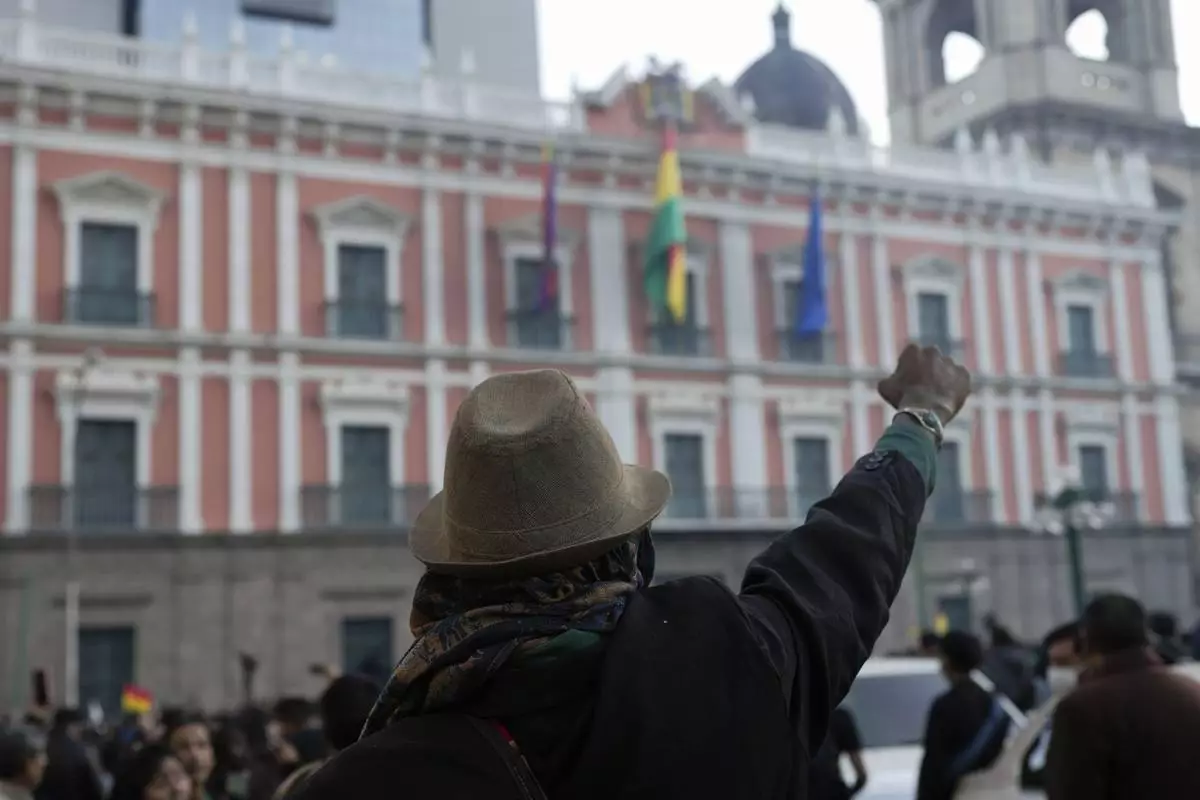
A supporter of Bolivian President Luis Arce raises a clenched fist in front of the government palace in Plaza Murillo, in La Paz, Bolivia, Wednesday, June 26, 2024. Arce addressed supporters who gathered in Plaza Murillo, after Wednesday’s apparent failed coup attempt. (AP Photo/Juan Karita)
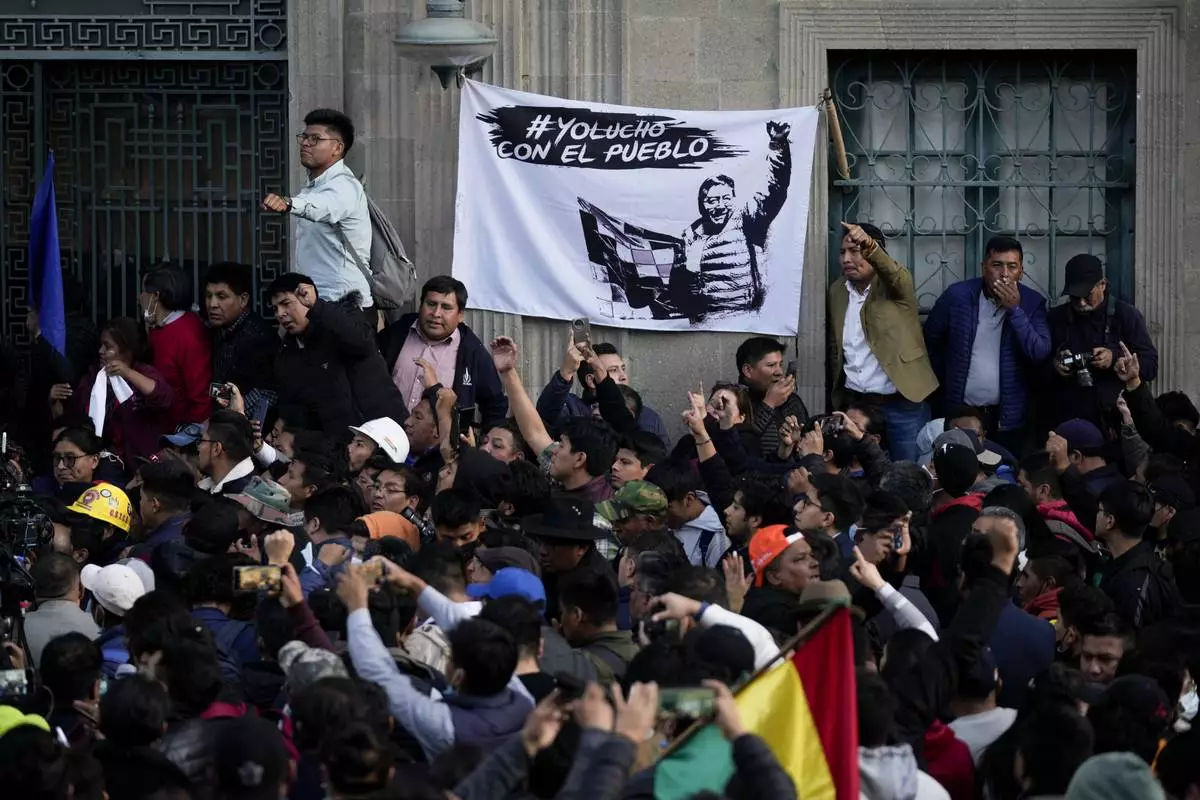
Supporters of Bolivian President Luis Arce crowd into Plaza Murillo in La Paz, Bolivia, Wednesday, June 26, 2024. Armored vehicles rammed the doors of Bolivia's government palace located in Plaza Murillo, in an apparent coup attempt on Wednesday against Arce, but he vowed to stand firm and named a new army commander who ordered troops to stand down. (AP Photo/Juan Karita)
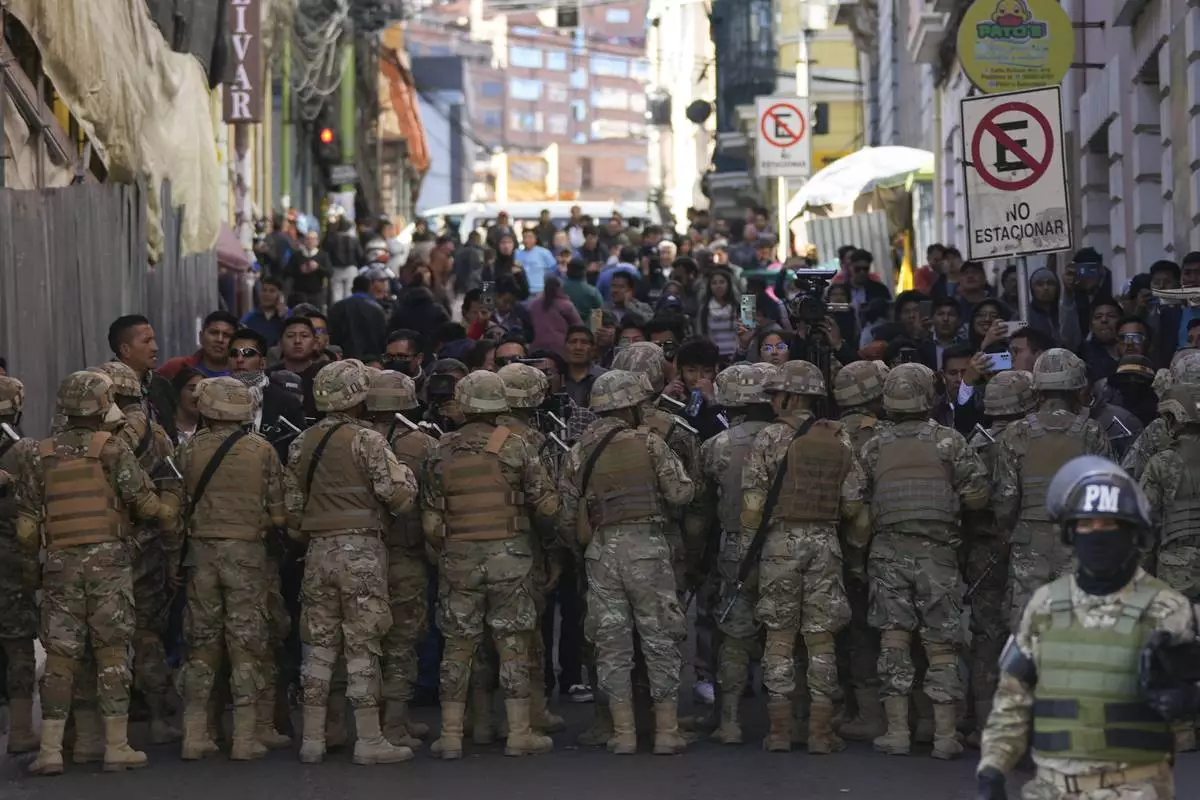
Military police block entry to Plaza Murillo in La Paz, Bolivia, Wednesday, June 26, 2024. Armored vehicles rammed into the doors of government palace located in Plaza Murillo, on Wednesday, as President Luis Arce said the country faced an attempted coup. (AP Photo/Juan Karita)
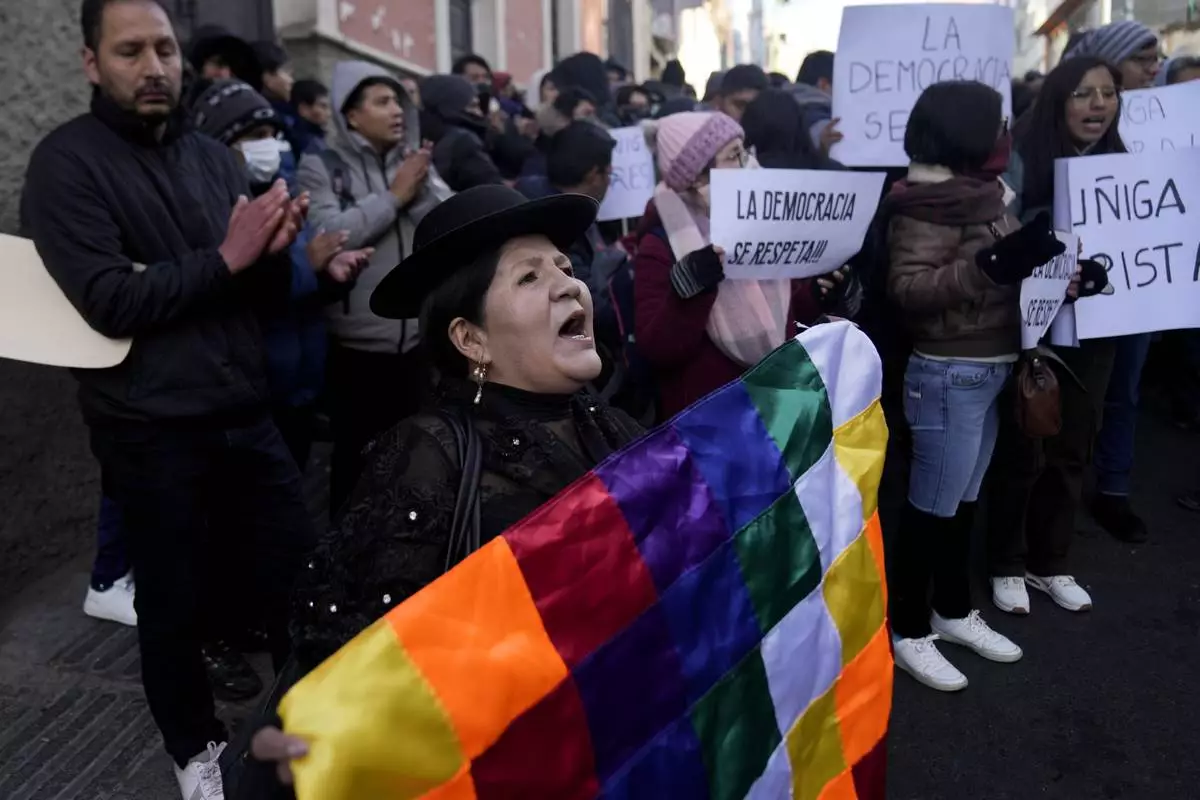
Alicia Chura, a supporter of Bolivian President Luis Arce, shouts against Juan Jose Zuniga, a former top Army general who led some soldiers to storm the presidential palace, outside police offices in La Paz, Bolivia, Thursday, June 27, 2024. The rebellion was short-lived as authorities arrested Zuniga and his soldiers retreated. (AP Photo/Juan Karita)
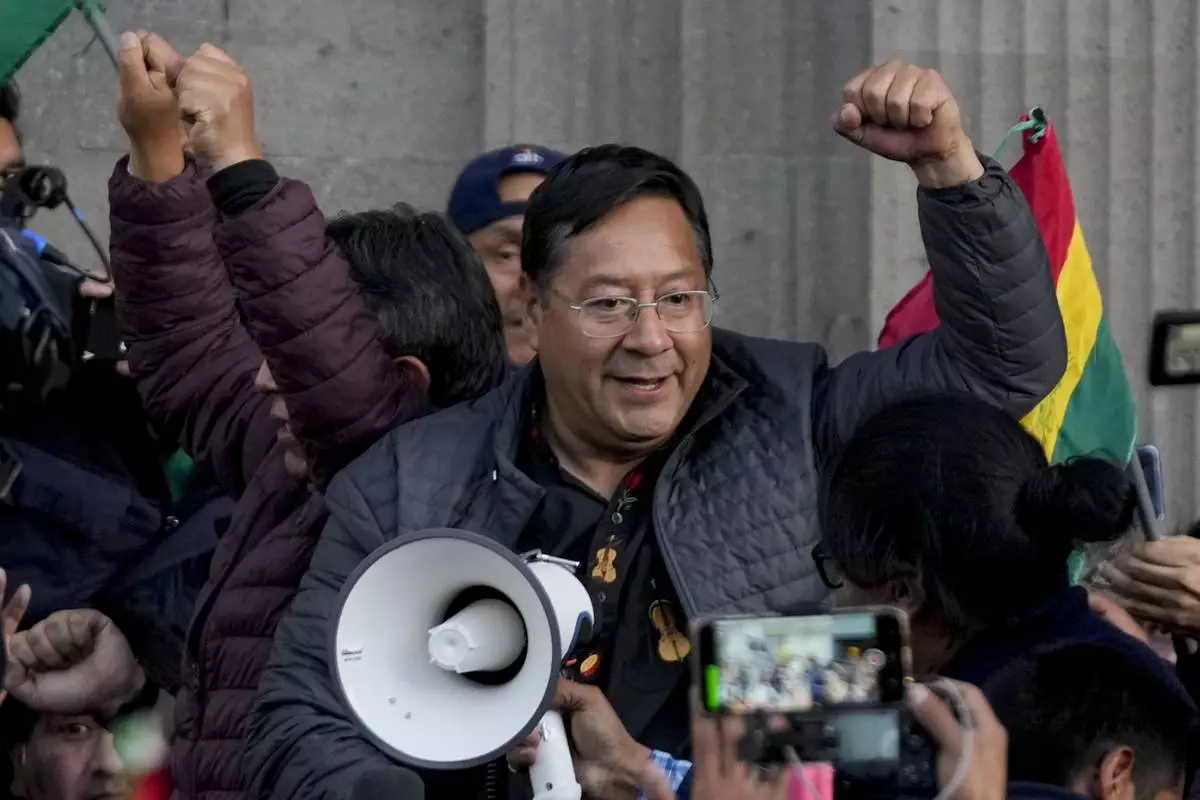
Bolivian President Luis Arce raises a clenched fist surrounded by supporters and media, outside the government palace in La Paz, Bolivia, Wednesday, June 26, 2024. Armored vehicles rammed the doors of Bolivia's government palace Wednesday in an apparent coup attempt against Arce, but he vowed to stand firm and named a new army commander who ordered troops to stand down. (AP Photo/Juan Karita)
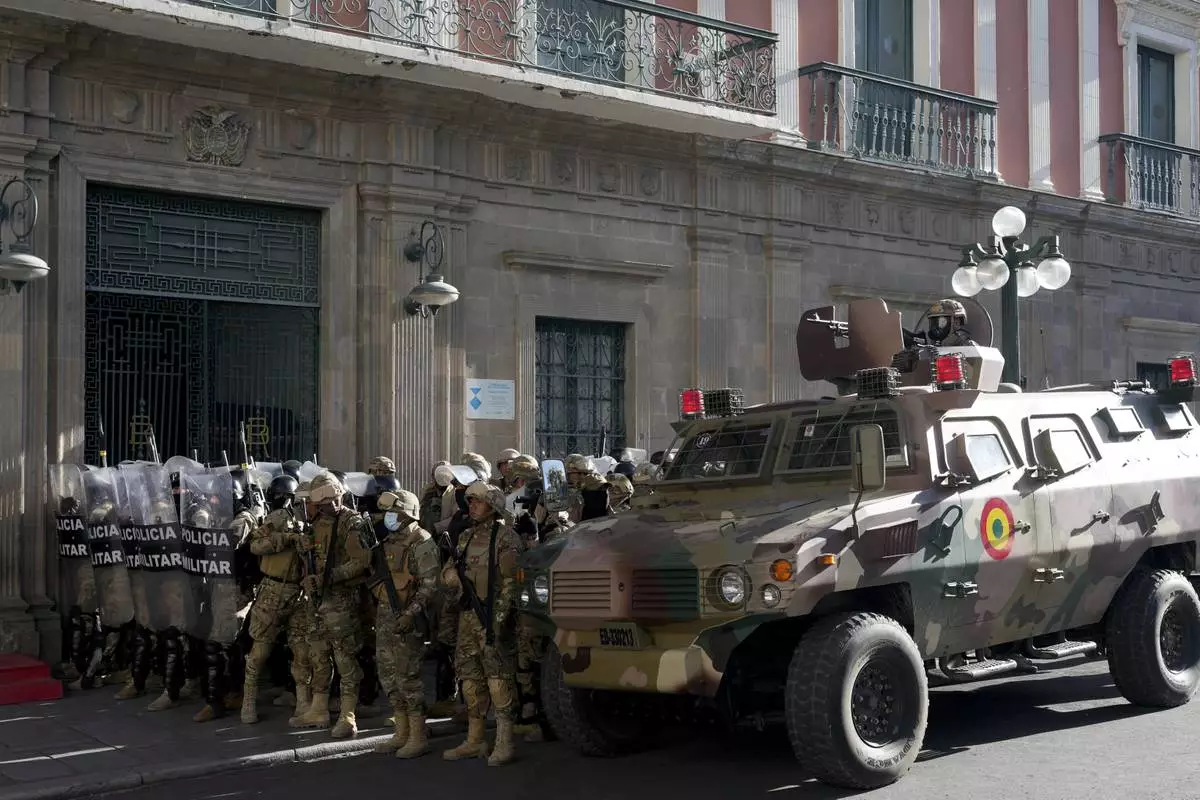
An armored vehicle and military police form outside the government palace at Plaza Murillo in La Paz, Bolivia, Wednesday, June 26, 2024. Armored vehicles rammed into the doors of Bolivia's government palace Wednesday as President Luis Arce said the country faced an attempted coup. (AP Photo/Juan Karita)
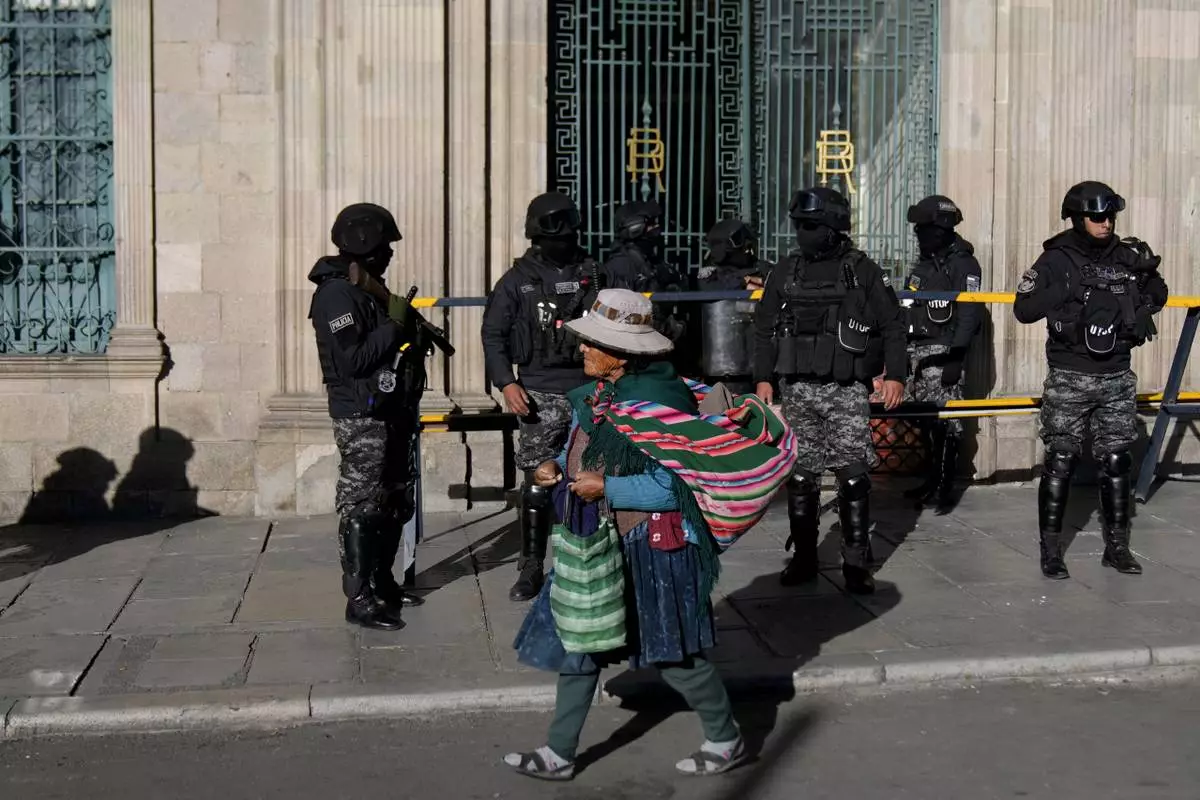
Police guard the government palace the day after a former top Army general led some soldiers to storm the building in La Paz, Bolivia, Thursday, June 27, 2024. The rebellion was short-lived as authorities arrested the general and his soldiers retreated. (AP Photo/Juan Karita)
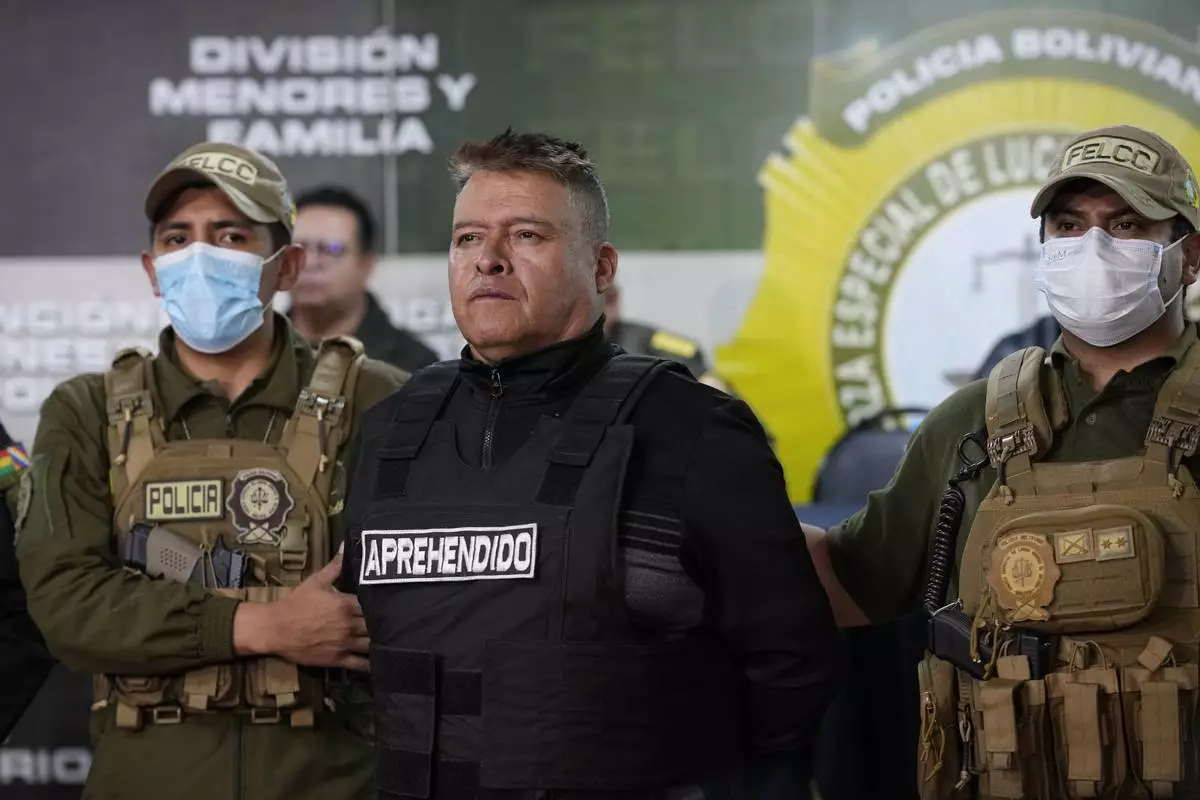
Bolivian police hold the detained Juan Jose Zuniga, former general commander of the Army, in La Paz, Bolivia, Wednesday, June 26, 2024. An apparent failed coup attempt erupted Wednesday in the country, and Zuniga appeared to be leading the rebellion. (AP Photo/Juan Karita)
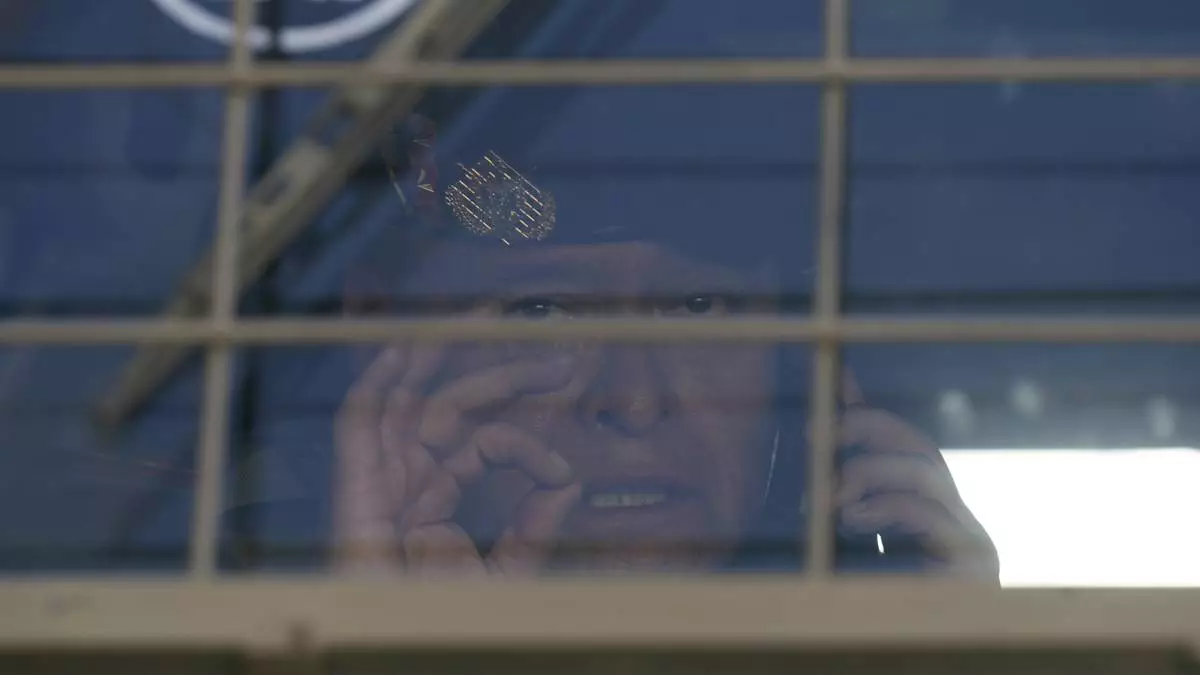
Army Cmdr. Gen. Juan Jose Zuniga sits inside an armored vehicle at Plaza Murillo in La Paz, Bolivia, Wednesday, June 26, 2024. Armored vehicles rammed into the doors of Bolivia's government palace Wednesday as President Luis Arce said the country faced an attempted coup. (AP Photo/Juan Karita)
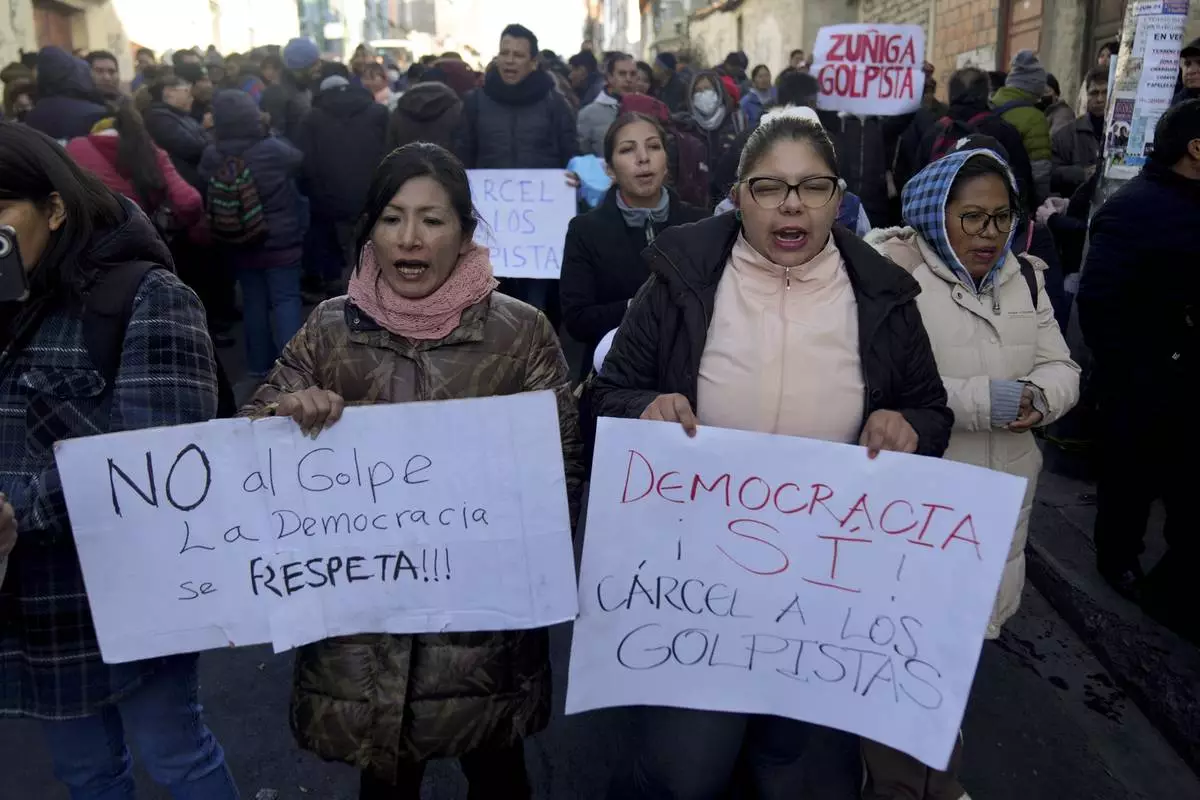
Supporters of Bolivian President Luis Arce protest against Juan Jose Zuniga, a former top Army general who led some soldiers to storm the presidential palace, outside police offices in La Paz, Bolivia, Thursday, June 27, 2024. The signs read in Spanish, left, "No to the coup. Respect democracy!" and "Yes to democracy! Jail the coup plotters." Authorities arrested Zuniga and his soldiers retreated the previous day. (AP Photo/Juan Karita)






